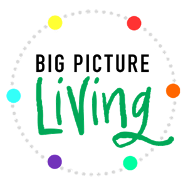A few days ago, writer and education researcher Mike Rose passed away. He was a true friend of ours. He loved what we did and vice versa. Mike’s life and writing influenced many of us but not enough of us. You couldn’t help but like Mike. Many would strongly agree with the stances he took in his books and blogs but practice was another matter.
Since the ‘60’s, Mike was always a champion around issues of Race and Gender. What set his work apart is his big focus on Class and the dignity, value and rigor in all sorts of work. Whenever I went to Santa Monica, we would always try and have dinner at the same place he haunted. There we would spend hours eating, drinking, bantering with the restaurant’s staff and discussing how to change not just schools but the way the public views work and the lives of working people. Hands down Mike was so much a better writer than me, but over the years, we would pass some of our writing back and forth for some serious critique. A few times, we switched up work. I had Mike speak at our Leadership Conference and he had me do workshops for CTE teachers he worked with. The last time I saw Mike he was walking down a side street next to SMASH. I shouted out, “Mike,” he stopped and we caught up a bit but he couldn’t make it that night for dinner.
In so many ways looking back in time gave Mike perspective on being way ahead of the times.
Here’s a few gems from Mike Rose:
“The Greeks’ error, originating in their stratified social order, was to assume that physical work could not, by its nature, give rise to judgment, deliberation, intellectual expression. We are not free of these assumptions.”
“In addition, you’ll see students redoing a task that was completed satisfactorily, but not up to their own standards (“I’ll not settle for this,” one says) and willingly giving up the time to do it again. Mastery is foregrounded; the clock recedes.”
The final point, and for me the critical one, has to do with the opportunity we as a society provide for young people to become engaged in sustained activity that requires hand and brain, action and reflection on that action.
We learn powerful things about the world not only by contemplating it but by acting on it – and what we learn through action can well move us to the contemplative.”
Meetings this week
Real nice meeting with an old friend Anne Stanton Executive Director of Linked Learning making introductions to Andrew. We are having talks about how to work better together around internship programs and assessment.
I missed the International Big Picture Learner Credential meeting with schools from the Pacific Northwest but will catch up with Viv this weekend.
I met with the College Unbound Nominating Committee searching for the next CU president for 2023.
At our Wednesday meeting, we discussed what we are going to do very differently as schools reopen in light of how things break and fall apart in our world. It was a great talk where we came up with quite a few nuggets. Here’s a few:
More Students will be doing Independent Study. This is a chance for our internship programs both in and outside of school.
LA Unified tested students for COVID and found 3600 students testing positive for asymptomatic COVID. Now what?
Last year, 100% of Harbor Freight Fellows and Mentors did not get COVID. Headline: Internships are very safe places to be.
How do we test for COVID at internships?
Youth Affinity groups will meet at Harbor Freight Fellows and Project InSight that will move into B- U’s Navigator Community.
“And the band played on…….” – The Temps
For the life of me and it may very well indeed be my life, I still don’t get the ways we are going back to school. Once again I’m watching school administrators do the “double-speak” giving lip service to mental health and then, backsliding into credit acquisition and learning loss as the priorities. Prevention data from a very strong evidence base of ACLM’s six measures loom large here. Accessing adults around your interests that gives our life meaning also improves mental health. It is no contest and no debate, prevention around well-being will go way further in getting better student academic performance (if, that’s what you care about) than constantly drilling down on academic content that lacks meaning to students. In BPLiving, students and staff are gearing up for the task.

I’m going back to Brooklyn today to my old neighborhood, I’m re-entering a realm that barely exists at one level but as I’m finding out many of the ways I grew up are still alive and well. Growing up in the shadows of Ebbets Field, you could be part of the trouble making and hope people were brewing up all around. It wasn’t an easy place to come from but there was a core of people that knew what a quality person was no matter race, gender and class. The quote from John Roseboro catcher for the Brooklyn and LA Dodgers about his friend Dodger pitcher Sandy Koufax perfectly sums up how performance assessment was done in Brooklyn then, as well as expresses my view on performance assessment now.
John Roseboro: “Trying to explain how he throws, how he got his control, how he thinks – he was just un-f*#king –usual. Who gives a shit how he threw it?”
Be well!
--
Elliot Washor
Co-founder of Big Picture Learning





Sorry to hear about Mike. He was an inspiration. We'd corresponded for a while. I'm glad you got to know him in real life. Who are the ball players in the photo? One I assume was Kofax. Was the other Roseboro? I love the show of hands.